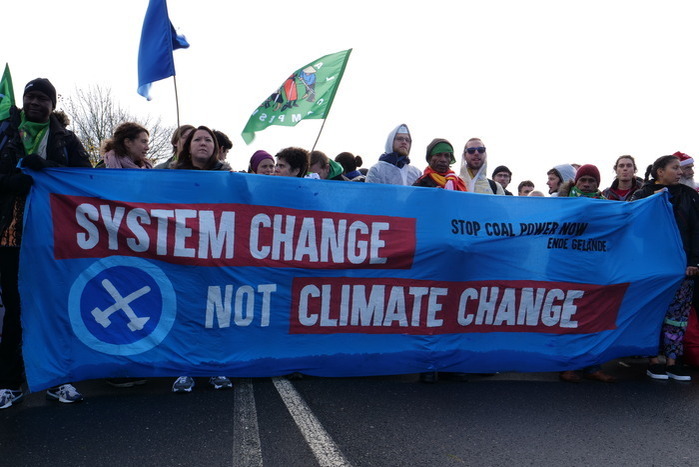Scientists, think-tanks and health experts have written a letter to world governments outlining 10 pivotal tests to understand their commitments to end fossil fuel expansion and adopt pathways to triple global renewables by 2030
Is the world on track to limit global warming to 1.5°C?
That’s the question on everyone’s minds as countries gear up for COP29 in Baku, Azerbaijan, this November. Three months later, in February 2025, countries will have to renew their National Determined Contributions (NDCs) as enshrined in the Paris Agreement.
To ensure that countries stay in line and attempt to contain global warming within 1.5°C, a broad range of experts have put their heads together to share a letter with governments, outlining 10 pivotal tests.
The most important of these tests include commitments to end fossil fuel expansion, plans for disbursing climate finance, measures to protect and revive degraded ecosystems, and pathways to tripling global renewables by 2030.
Signatories of the letter include over 15 leading civil society organisations representing scientists, business leaders, think tanks, cities, youth, and health experts like 350.org, the International Institute for Sustainable Development (IISD), E3G, Global Citizen, C40, We Mean Business Coalition, the Union of Concerned Scientists, and Oil Change International.
“Claiming to lead on climate while continuing the expansion of oil, gas and coal production is indefensible at this point. Governments need a plan for reducing reliance on fossil fuel production. The bare minimum is ending new exploration licensing. This is the moment to get serious about the carbon budget,” said Natalie Jones, policy advisor at IISD.
Ten questions
The letter was timed to be sent to government leaders as they gather at the UN General Assembly in New York, USA. The aim is to put some pressure on the countries, which individually and collectively, are woefully short of required efforts to mitigate climate change.
But there’s hope, especially with the ten tests outlined by the experts. They are:
- Is there an explicit commitment to end fossil fuel expansion and foster a just economic transition?
- Is there an ambitious, 1.5C-aligned greenhouse gas reduction target?
- Does the NDC include economy-wide and sector specific targets?
- Does the plan include stronger actions to help protect communities against climate impacts?
- Is the plan aligned with the global goal to triple renewable energy capacity and double energy efficiency gains by 2030?
- Is the plan transparent, detailed, and free from deceptive metrics?
- Are the targets backed by strong government policy?
- Have governments committed to significantly scale-up climate finance?
- Does the plan include measures to protect and restore ecosystems?
- Does the NDC comprehensively address food systems?
It’s critical that governments pay heed to these tests, especially in regards to fossil fuel expansion, renewable energy targets and updated NDCs. Namrata Chowdhary, Head of Public Engagement at 350.org, says, “At COP 28, climate negotiators came to the agreement that fossil fuels need to be phased out, renewable energy needs to be tripled and energy efficiency needed to be doubled. Heads of state have committed to a pact for the future reiterating the commitments made at Dubai. Now we must see comprehensive plans that set ambitious 2035 targets and revisit and strengthen 2030 goals,” she said.
“These updated NDCs must clearly outline how each country will accelerate its transition away from fossil fuels, triple renewable energy targets, and double down on energy efficiency measures.”
Come together
As civil society organisations are coming together to ensure the Earth has a fighting chance, governments, too, must join hands. While they independently work on achieving their own 2035 climate targets, developed countries must take leadership in helping out less fortunate countries with technology and finance, said experts.
Countries must realise what is at stake, said Dr. Jeni Miller, Executive Director of the Global Climate and Health Alliance. “Global temperature rises mean that communities around the world are facing devastating floods and wildfires, oppressive heat waves, the spread of vector-borne disease, droughts that drive hunger and thirst, and widespread mental health impacts. Ambitious NDCs are vital for the planet and for human life,” she said.
“At the same time, climate action across sectors can yield health co-benefits, not least cleaner air through a just transition from fossil fuels to renewable energy. People’s health is the human face of the climate crisis, and must be a cross-cutting issue integrated across all aspects of countries’ NDCs,” she further added.
About The Author
You may also like
Air Pollution is Changing the Lightning Patterns in India, Study Finds
Temporary CO2 Removal Will Help Offset Methane Emissions: Report
Rise in Fossil Fuel Burning is Making Floods Lethal in Asia
Heatwaves Drove 9% of India’s Power Demand in the Summer of 2024
World Off-Track on Climate Goals as Temperatures are Predicted to Rise: Report

